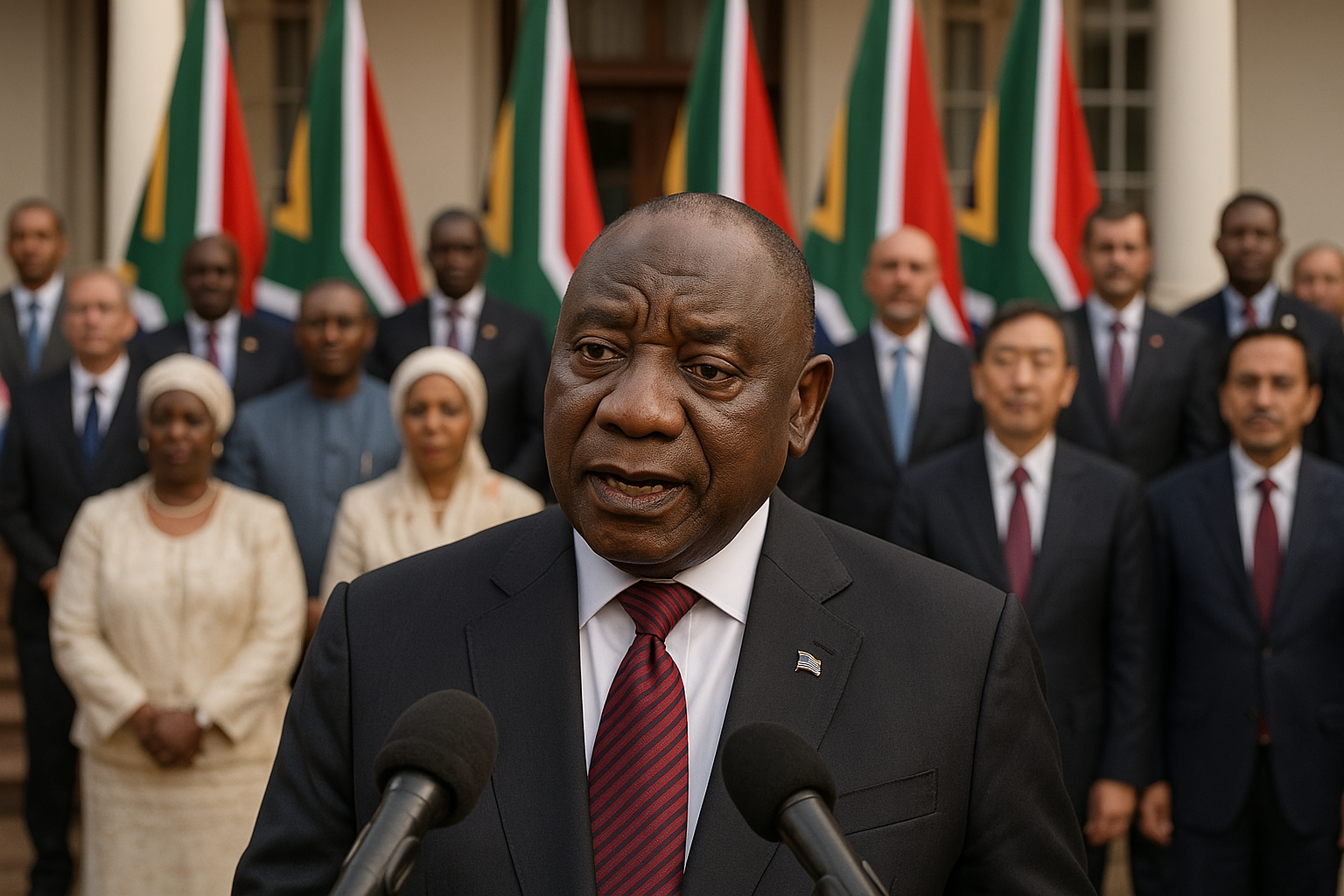Ramaphosa Hails Progress in Operation Vulindlela, Eyes Second Wave of Reforms
“These are all part of our concerted efforts to dismantle the binding constraints that have held our economy back for decades,” Ramaphosa said.

- Country:
- South Africa
In his latest From the Desk of the President newsletter published Monday, President Cyril Ramaphosa affirmed that the South African government is making "significant progress" in removing longstanding barriers to economic growth through Operation Vulindlela, and announced that the initiative is now entering a pivotal second phase aimed at deepening structural reforms across key sectors.
Operation Vulindlela—launched in 2020 during the sixth administration—is a joint initiative between the Presidency and National Treasury, designed to accelerate economic reforms across network industries and create a more enabling environment for investment, job creation, and inclusive growth.
Operation Vulindlela: From Vision to Implementation
The President noted that a recently published progress report on Operation Vulindlela reflects steady gains in key reform areas, including:
-
A significant reduction in load shedding over recent months due to energy market liberalisation
-
Lower mobile data costs resulting from spectrum licensing and competition reforms
-
Faster approvals for water use licenses, reducing delays in infrastructure and industrial projects
-
A notable clearing of visa backlogs, paving the way for more efficient movement of skills, investment, and tourism
“These are all part of our concerted efforts to dismantle the binding constraints that have held our economy back for decades,” Ramaphosa said. “Now, we are ready to move into the second phase, building on these gains with a new wave of reforms.”
Phase Two: A Bold Reform Agenda
According to the President, the second wave of Operation Vulindlela will focus on unlocking further economic potential through reforms in electricity markets, freight logistics, digital services, visa systems, and local government infrastructure.
🔌 Power Sector Reforms
A major thrust of the second phase involves the establishment of a competitive electricity market, which will encourage private generation, diversify supply, and significantly reduce the risk of future load shedding. This includes:
-
Expanding the role of independent power producers (IPPs)
-
Finalising frameworks for wheeling electricity across the grid
-
Empowering consumers with choices to select energy providers
🚄 Rail and Ports Modernisation
Ramaphosa confirmed the operationalisation of the Rail Infrastructure Manager, now a separate division within Transnet, to enhance network transparency and boost private sector participation. Already, the entity has received 98 access requests from potential private train operators.
Further, a recent Request for Information (RFI) for private sector collaboration in rail and port projects drew an “enthusiastic response” from the investment community, according to the President. These partnerships are expected to inject new capital and technical capacity into a logistics sector long plagued by inefficiencies.
🛂 Visa and Travel Reforms
The Department of Home Affairs has finalized development of a new Electronic Travel Authorisation (ETA) system, with a public launch slated for September 2025. This innovation is set to:
-
Streamline visa issuance for international travelers
-
Attract business and tourism
-
Reduce red tape for skilled migration
Local Government and Infrastructure: Ring-Fencing Services
In a significant new dimension, Operation Vulindlela’s second phase will place emphasis on local government reform, particularly in metro municipalities that deliver essential services like water and electricity.
Ramaphosa revealed that several metros have submitted utility turnaround plans that aim to:
-
Ring-fence water and electricity functions from broader municipal finances
-
Enhance transparency and operational independence
-
Improve access to a new performance-based incentive grant from National Treasury
“This incentive system will encourage greater investment in basic infrastructure while ensuring municipalities are held accountable for service delivery,” Ramaphosa said.
Rebutting Privatisation Concerns
The President dismissed claims from opposition parties that the reforms amount to privatisation of state assets, calling such views “baseless and misguided.” Instead, he framed the reforms as "common sense solutions" aimed at preserving public ownership while enabling innovation, competition, and investment.
He pointed to international success stories, where countries that adopted similar reforms saw sustained improvements in economic growth, infrastructure quality, and investment inflows.
“What we are pursuing is not privatisation, but modernisation—an approach that leverages public-private collaboration to build a stronger, more resilient state,” he stressed.
A Vision for a Resilient, Inclusive Economy
President Ramaphosa concluded by reiterating that South Africa's reform agenda is not only a response to past inefficiencies but a proactive strategy for long-term transformation.
“Even as the world faces difficult economic headwinds, our economic reform agenda will create the conditions for higher growth and investment, while renewing our infrastructure for generations to come,” he said.
With economic growth and job creation at the core of his administration’s legacy, the rollout of Phase Two of Operation Vulindlela signals an ambitious push to reinvigorate South Africa’s economy from the ground up, delivering on promises of inclusive development, institutional renewal, and national resilience.










